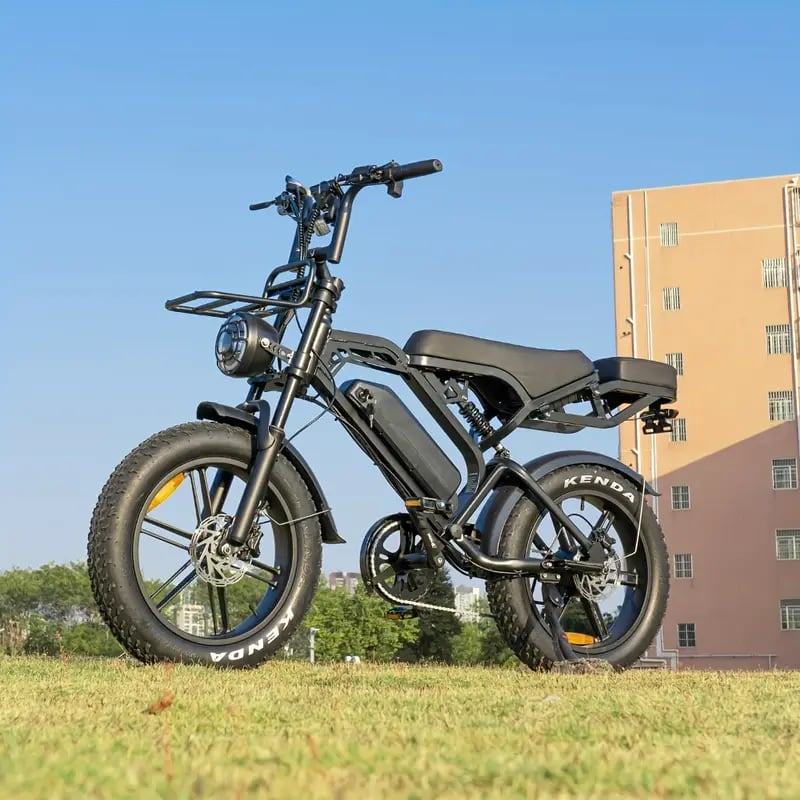The Surge of Large E-Bikes: A Market Disruption via AliExpress and Temu
The article discusses the growing impact of large e-bikes sold on online platforms like AliExpress and Temu, particularly in markets like New Zealand.
2/21/20252 min read


The Surge of Large E-Bikes: A Market Disruption via AliExpress and Temu
Introduction
The e-bike market is witnessing a significant transformation, particularly with the influx of large e-bikes available through online sales platforms like AliExpress and Temu. These platforms are offering e-bikes that resemble mopeds but operate under different legal classifications due to their power limitations, typically below 2 kW. This situation poses challenges for local e-moped startups, particularly in regions like New Zealand, where the price disparity is vast.
The Rise of E-Bikes on Online Platforms
AliExpress and Temu
AliExpress has long been known for its extensive range of products at competitive prices, often appealing to budget-conscious consumers. Recently, Temu has emerged as a formidable competitor, particularly in markets like New Zealand, thanks to its local warehouses that facilitate quicker shipping times and reduced costs. Temu's model allows customers to purchase large e-bikes for as low as $1,800, a striking contrast to the typical prices of locally manufactured e-mopeds, which can reach up to $7,200 or more.
Legal Classifications and Market Dynamics
While these e-bikes may physically resemble mopeds, they often fall outside the legal definitions of mopeds in various regions due to their power ratings. In many jurisdictions, vehicles with motors exceeding 2 kW are classified differently, which can affect licensing and regulatory requirements. This legal grey area allows these e-bikes to be marketed aggressively without the same constraints faced by traditional e-mopeds, further enhancing their attractiveness to consumers seeking affordable options.
Impact on Local E-Moped Startups
Price Competition
The stark price difference between imported e-bikes and locally produced models is creating a challenging environment for local startups. Many New Zealand manufacturers are struggling to compete with the low-cost offerings from Temu and AliExpress, which can be a quarter of the price of domestic products. This price disparity not only hampers local sales but also threatens the viability of these startups, which often rely on a combination of quality, local support, and brand loyalty.
Quality Concerns
While the lower prices are enticing, there are concerns regarding the quality and durability of e-bikes purchased from these platforms. Local manufacturers often emphasize quality control and customer service, aspects that may not be prioritized by overseas suppliers. This difference could lead to long-term implications for consumer satisfaction and safety, potentially tarnishing the reputation of the e-bike market as a whole.
Conclusion
The influx of large e-bikes through AliExpress and Temu is reshaping the e-moped landscape, particularly in regions like New Zealand. While consumers benefit from lower prices and a wider selection, local startups face significant challenges in competing against these low-cost imports. As the market continues to evolve, it will be crucial for local manufacturers to adapt their strategies, focusing on quality, local service, and unique selling propositions to retain their market share in an increasingly competitive environment.
References
